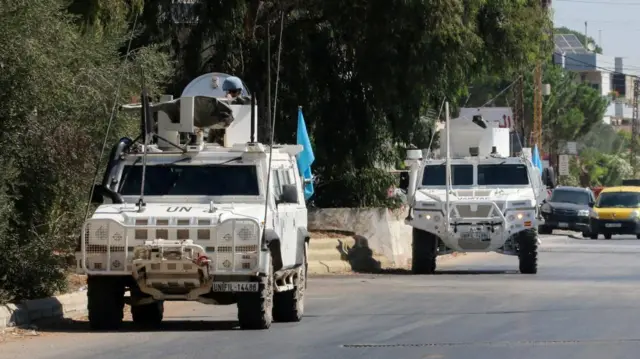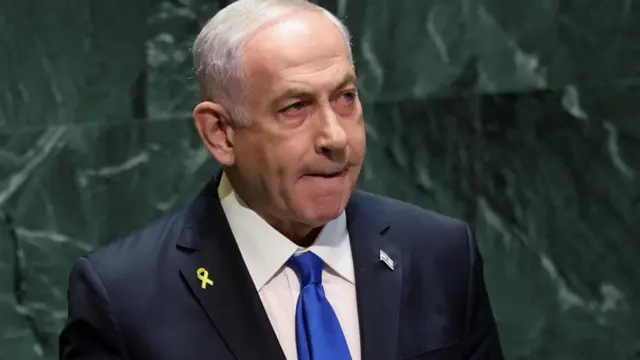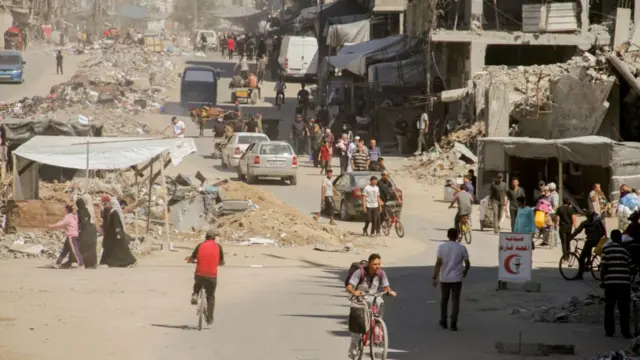Sirens heard across northern Israelpublished at 07:14 BST 15 October 2024
This morning, sirens warning of incoming rocket fire have been sounding across northern Israel, including in Haifa, which has been targeted repeatedly by Hezbollah in recent days.
The alarms have also been activated in communities near Haifa, including Wadi Ara, Karmiel, and Menashe.
The Israeli military says that following the sirens, two projectiles were identified crossing from Lebanon and were intercepted by the air force.




